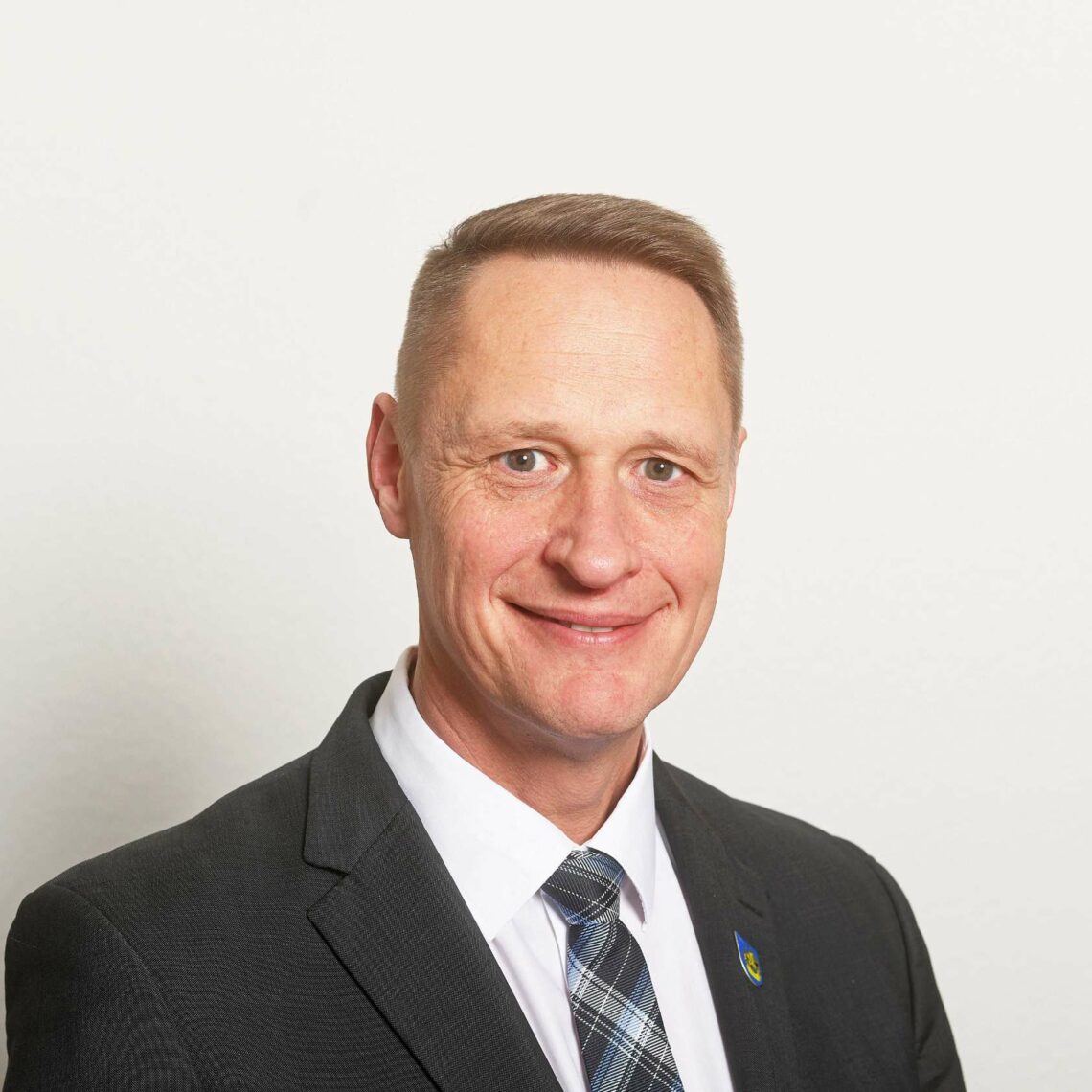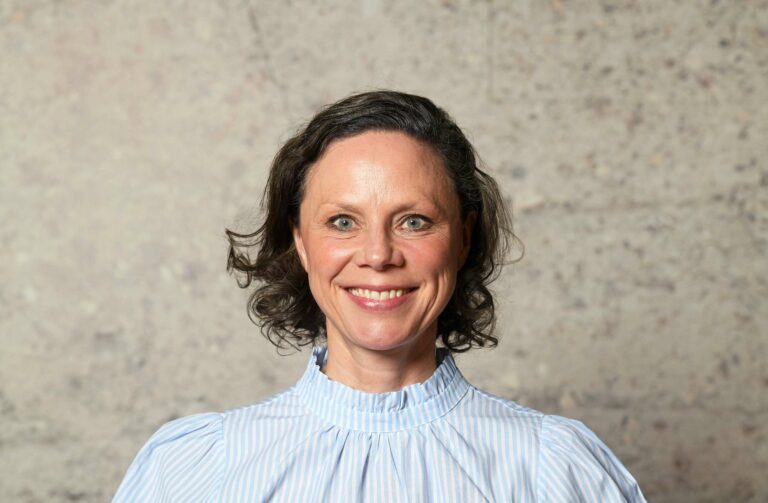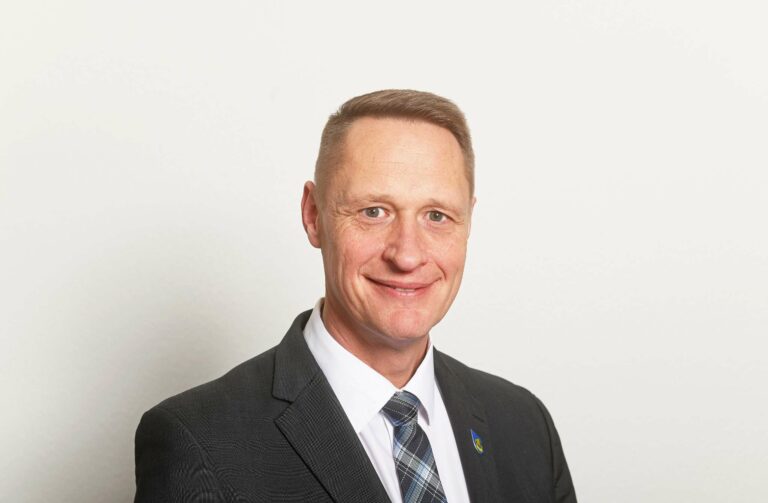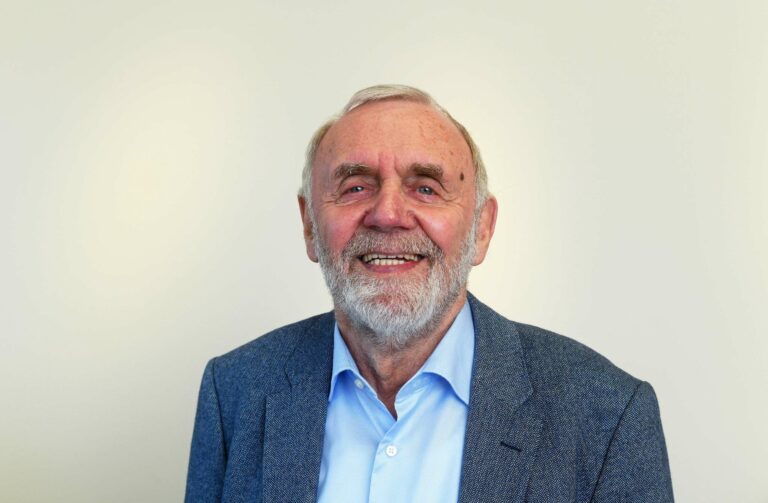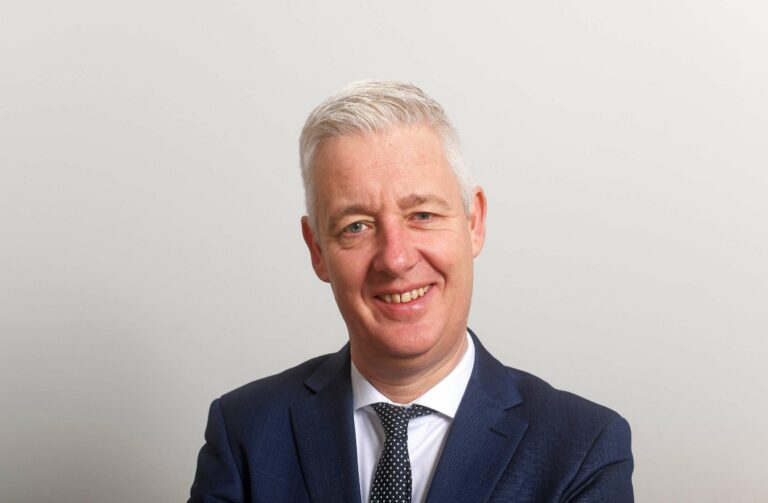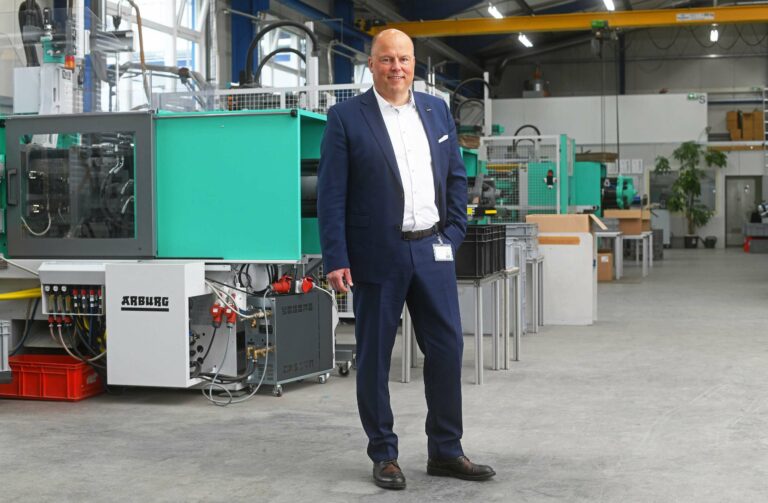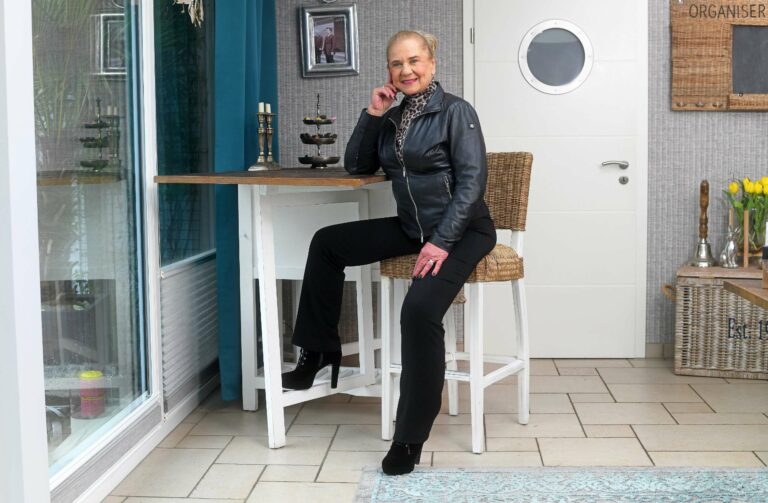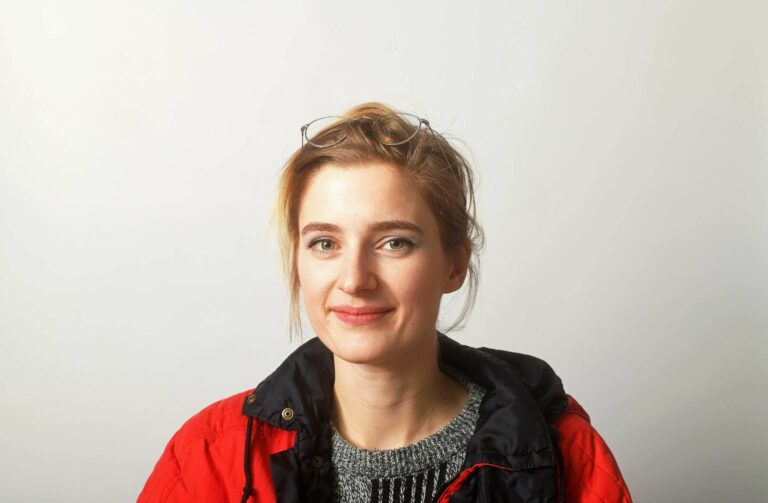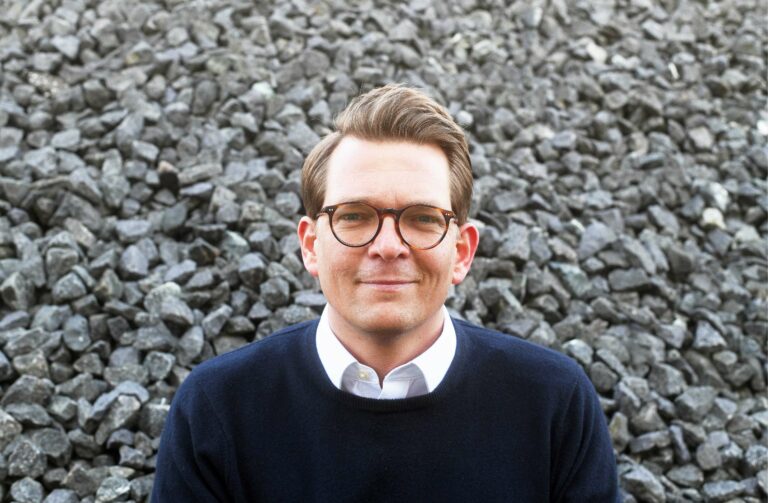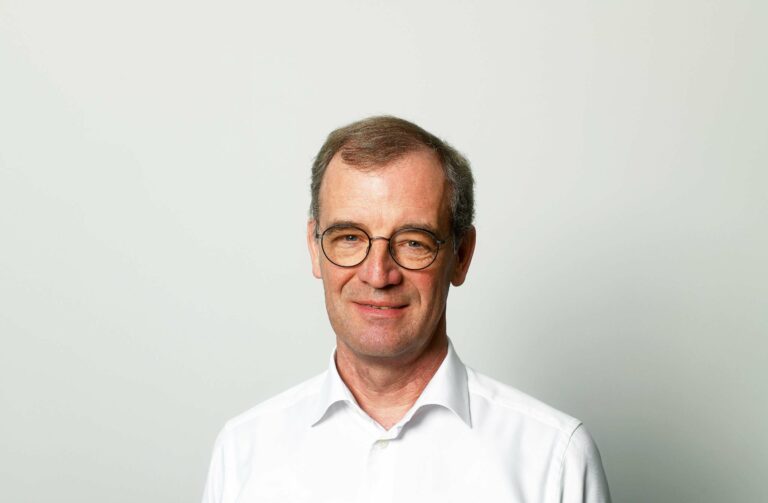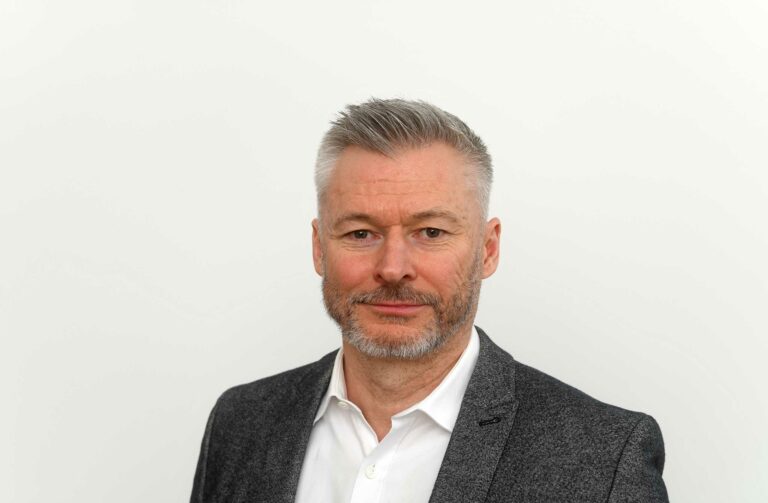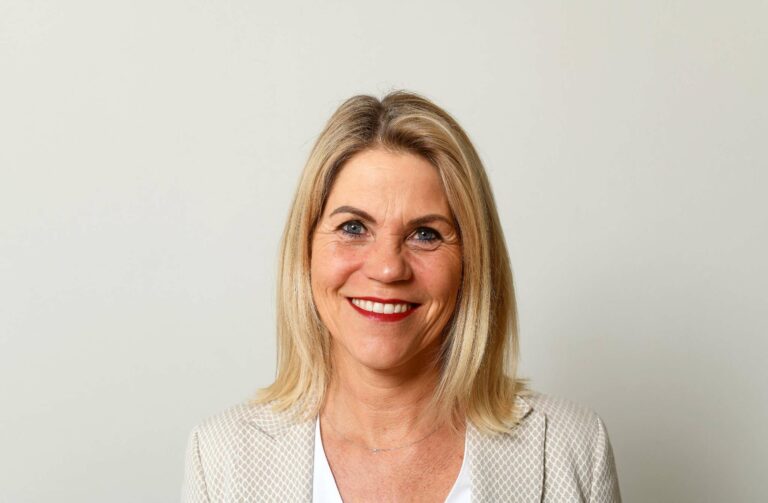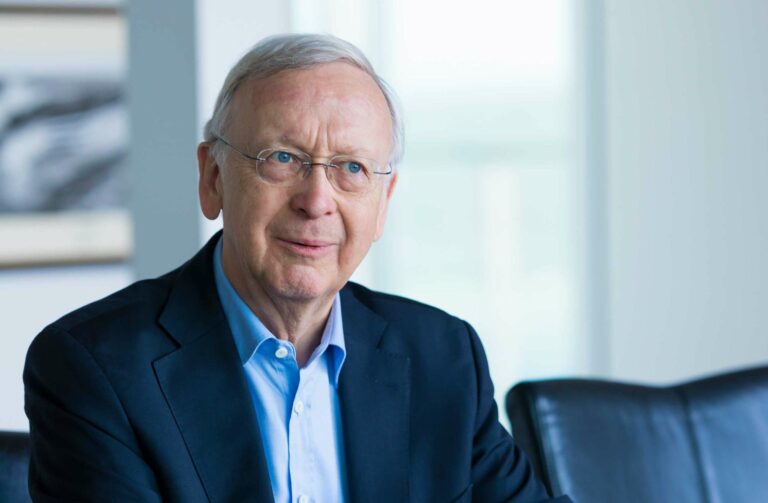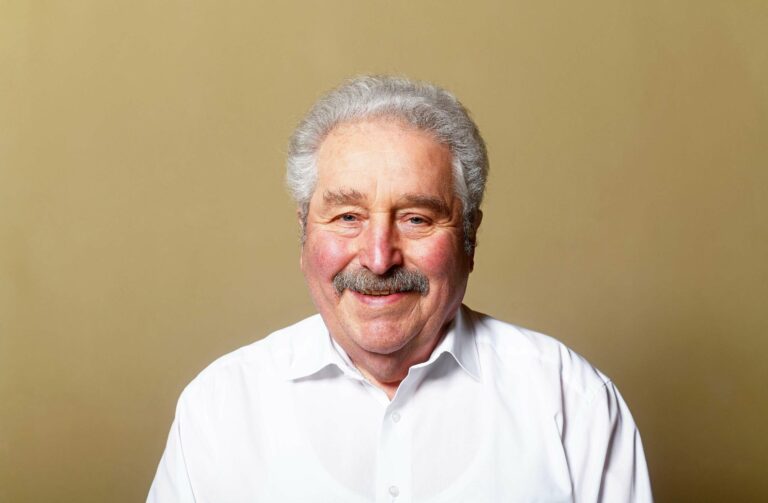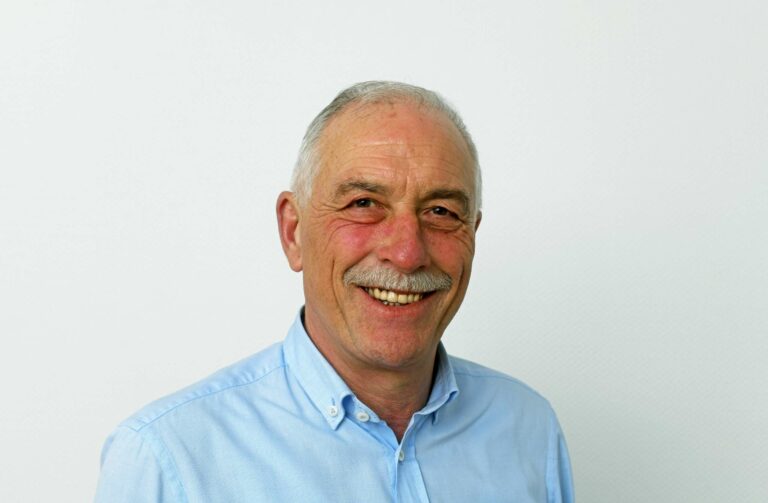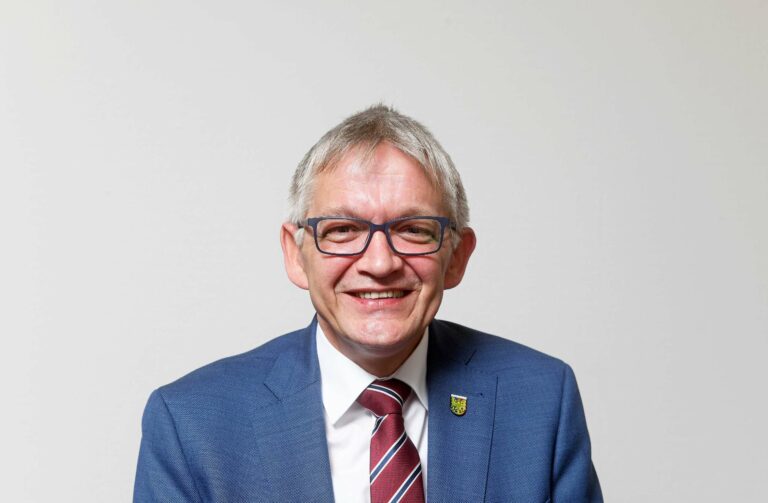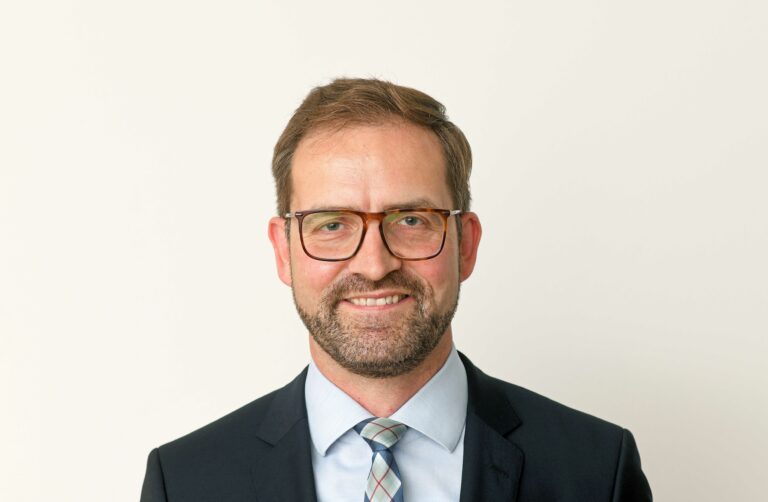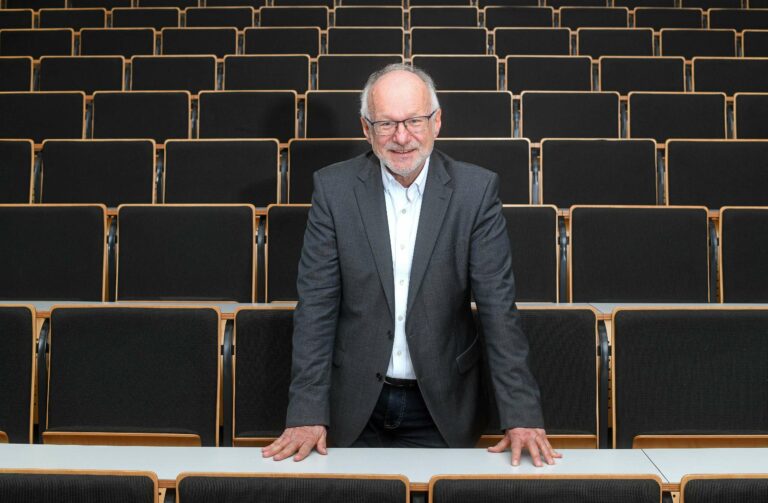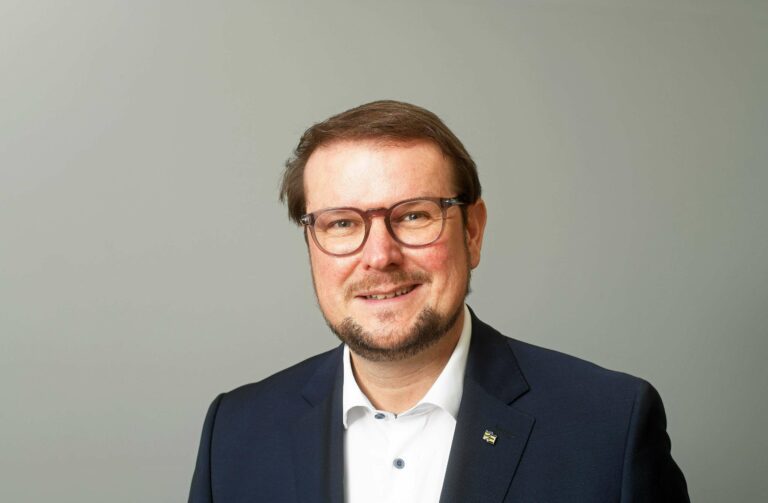“We mustn’t talk ourselves down!”
Holger Heymann has a clear idea of how Ostfriesland should develop in the next few years. He sees the region as Germany’s energy hub, and digitalisation should put it on an equal footing with the big cities – all in surroundings that are worth living in. As chief district administrator of Wittmund district, he intends to continue doing his bit.
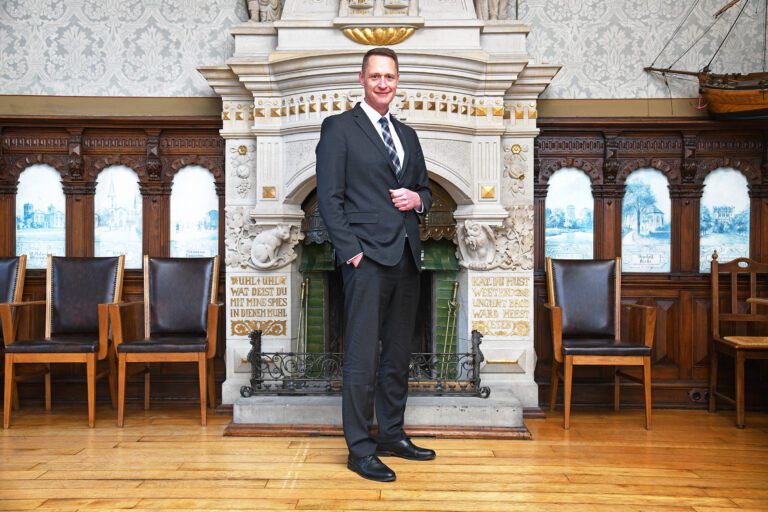
No pencils and no pens. No folder with papers waiting for attention. Not even a little box with paper clips. There’s just a phone and a laptop on Holger Heymann’s desk. The chief district administrator of Wittmund district calls himself a proponent of digitalisation – and acts as a consistent role model. The paperless office: that is certainly true for Holger Heymann. As a person, he also comes across as being similarly uncluttered during the interview around the large conference table. First things first: a cup of tea as a warm-up. Brief but interesting small talk. Then he gives succinct answers to all questions and avoids unnecessary deviations that go nowhere. Now and then – particularly when talking about his own bio – he grins as he speaks. But when it comes to the special challenges he faces in his job, Heymann soon becomes serious again. Talking about Covid-19 in particular leaves no scope for merriment.
Puzzling up-and-down
During the first few months of the pandemic, Wittmund rural district was repeatedly the focus of national attention, trending first in one direction, then in the other. In one week, the incident rate was far lower than in all other regions in Germany. Soon after, it was suddenly far higher. “To this day we have no way of explaining this strange up-and-down”, Heymann admits, talking of “statistical snapshots”. A crisis team was set up, meeting time and again for consultations in the disaster protection cellar. “This was unchartered territory for all us. To start with, we had to get our bearings.”
The period spent in almost continuous crisis mode has left its mark. Looking back, Heymann sees it as the hardest phase hitherto during his time in office. “When the crisis team suddenly starts talking about things like body bags or refrigeration facilities, or when your everyday business brings you face-to-face with the plight of whole families, you can’t remain unaffected.” On the contrary, he adds pensively, “it eats you up”.
It’s no great surprise that those in public office like the chief district administrator have to accept they won’t have the luxury of a clean cut between public and private life. “You take lots of things home with you in your mind”; reports Holger Heymann. People also keep on coming up to you in the street with issues that are preying on their minds, whether at the marksmen’s festival or at the baker’s. “It really only takes three minutes for me to buy fresh rolls in the morning, but sometimes I need half an hour”. On the other hand, the man in his mid-forties shows his pragmatic side when he says “I knew what I was letting myself in for when I applied for the job”. It’s also clear that he could never take on this kind of task without his family behind him.
Wonderful childhood
Heymann grew up on a three-generation farm typical for Ostfriesland in the village of Neuschoo, as the first-born son of a textile shop assistant and the plant foreman of the local brickyard. He loves looking back on the “wonderful years” with the grandparents, with their pigs and hens. “I really enjoyed my childhood”, he says.
It was the same with school. Little Holger found it easy to learn. But doubts arose when he was supposed to be sent to grammar school in nearby Esens. Could the young family afford it? The answer came from elsewhere, something the current chief district administrator is really glad about in retrospect: in 1991, the state government led by Gerhard Schröder, Minister President at the time and future Federal Chancellor, introduced the principle of free learning material at schools in Lower Saxony. In Neuschoo, parents and son breathe a sigh of relief. “I was so grateful, that later on I joined the SPD”, explains Holger Heymann. His grin reveals that he will also have had other reasons for doing so.
After passing the Abitur school-leaving examinations, he went on to do his civilian service at the Protestant Youth Training Centre in Asel. “Working, among others,
with people with disabilities had a lasting impression on me and broadened my view of the world”, he says. This was followed by what in the end was just a short episode as a teacher training student. “I wanted to teach German and history, but soon found out that wasn’t the right thing for me.” Instead, Heymann opted to train as a bank clerk – and to take the first steps onto the political stage.
From Neuschoo to Hannover and back again
In 2001 at the age of just 24 years, Holger Heymann became the youngest member of Neuschoo’s eleven-member village council. He was driven by the desire to deal with local problems. He was so good at this that he was re-elected again in 2006. “I was always good at talking and listening, and also at getting things done – that must have impressed people”. The next career advancement came three layers later, when village mayor Theodor Storck announced that he was stepping down. “They suggested me as his successor,” and the council voted for him to do the job.
But although this sounds like a success story, there was in fact a little flaw in the proceedings. In 2008, Heymann stood unsuccessfully as the SPD candidate for a seat in the state parliament. But he sees it as no blemish that the direct mandate went to his CDU rival Hermann Dinkla from Westerholt who, when all is said and done, was the future president of the state parliament: “As a sportsman, I know that losing is all part-and-parcel of the contest.” And anyway, ambition is boosted by defeat. And so Heymann’s name was back on the ballot paper again in 2013. Lo and behold, this time he was elected.
From Neuschoo to Hannover. A large step. SPD and the Greens had a tiny majority in the state parliament of just one vote. That meant compulsory attendance for all members of parliament of the coalition parties. As a consequence, the young father rarely saw his son born in 2014.
The dilemma was solved by an external factor: two years later in 2016, Wittmund’s chief district administrator Matthias Köring was leaving politics to go into business. The Heymanns held a family council.
The result was that Holger Heymann decided to stand for election. He achieved the necessary absolute majority already in the first round. The journeys to Hannover were now relegated to the past. The new workplace for the man from Holtriem was the nearby district administration centre in Wittmund. In September 2021, the people living in the rural district confirmed Heymann as chief district administrator with more than 80 percent of the vote. He sees the fact that there were no other candidates on the one hand as confirmation of his work: “Nobody else seemed to think they could do the job better.”
On the other hand, he regrets the lack of competition: “Democracy lives from choice.”
By the way, he provides information about these and all other activities and honorary positions in a comprehensive public list. “The way I see politics is that the most important thing is to be transparent, as well as authentic and communicative”, Heymann says in all clarity. A clear position that goes well with a tidy desk and orderly life.

